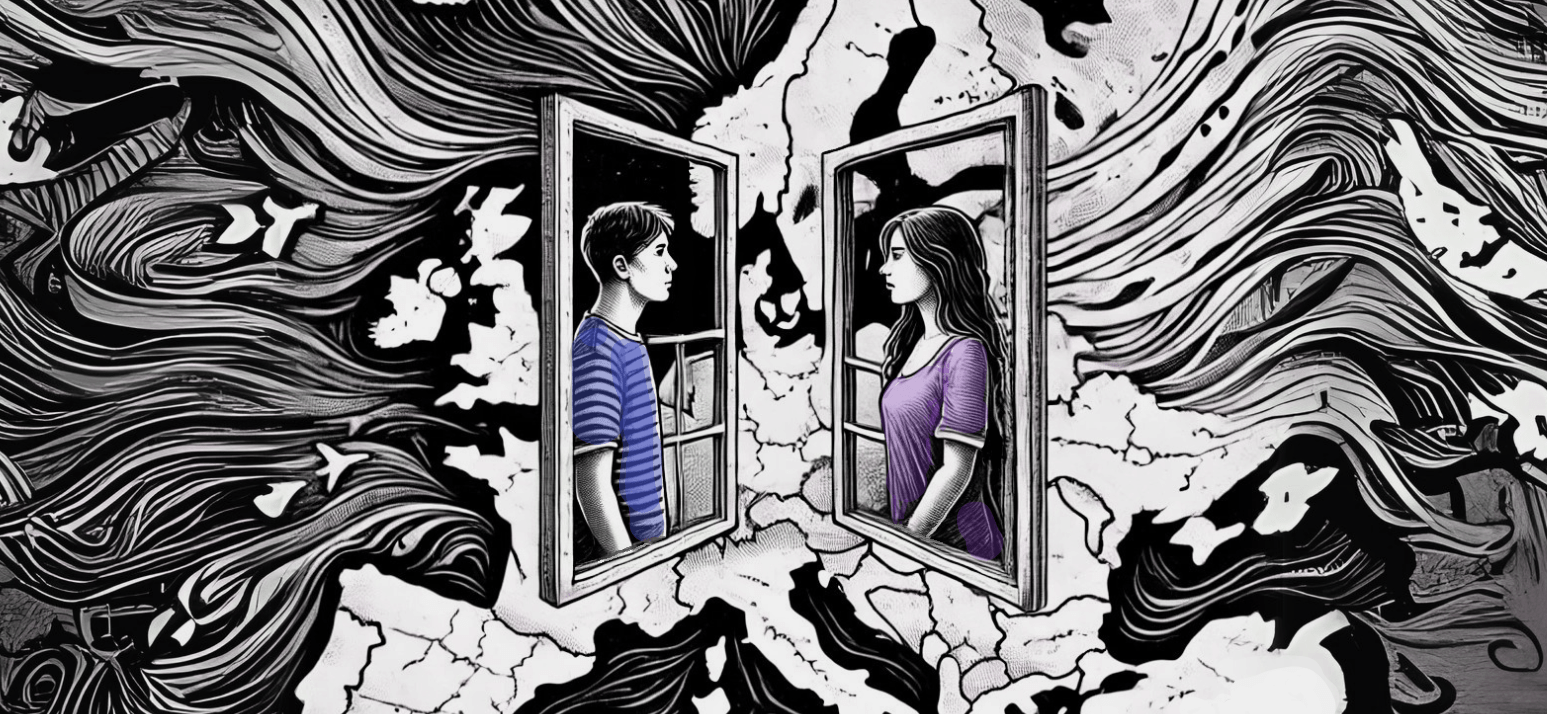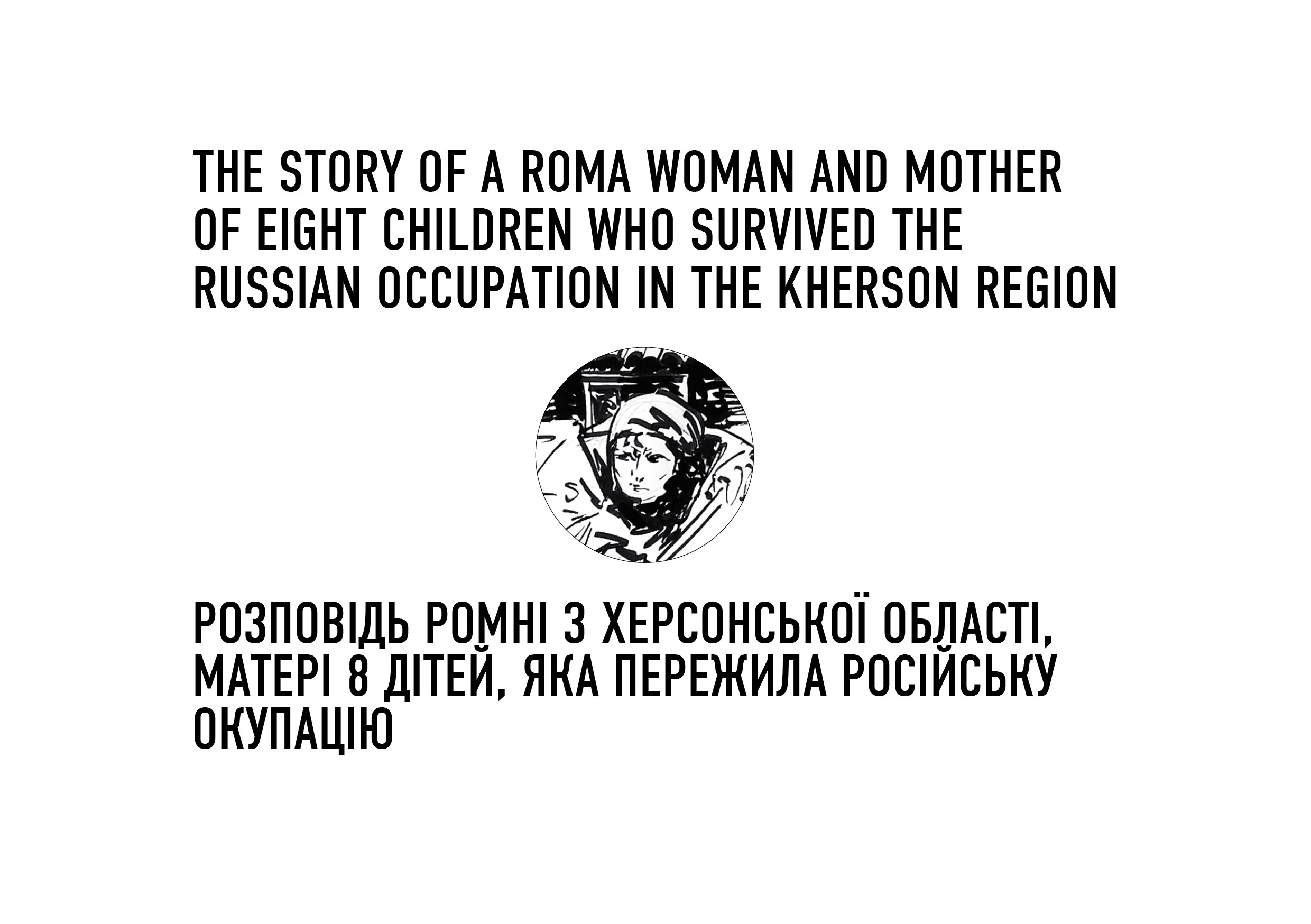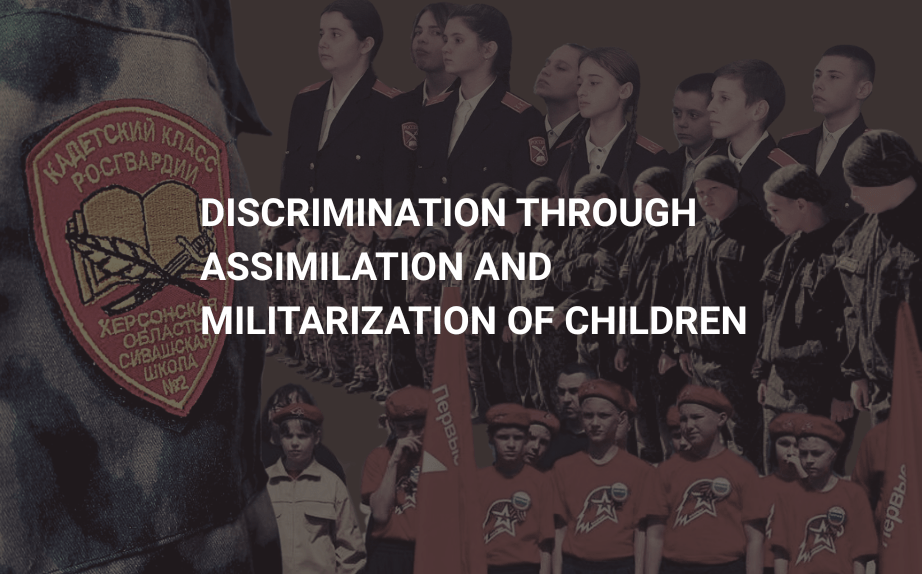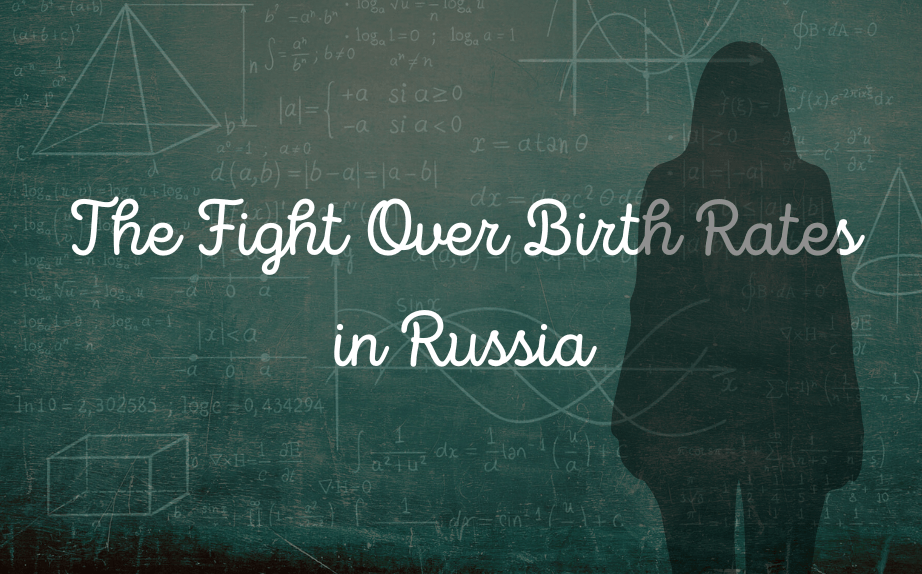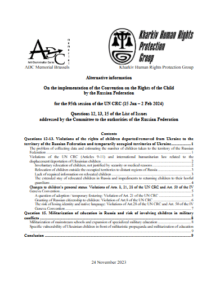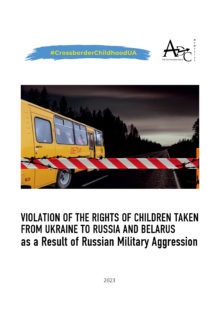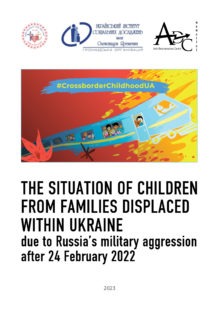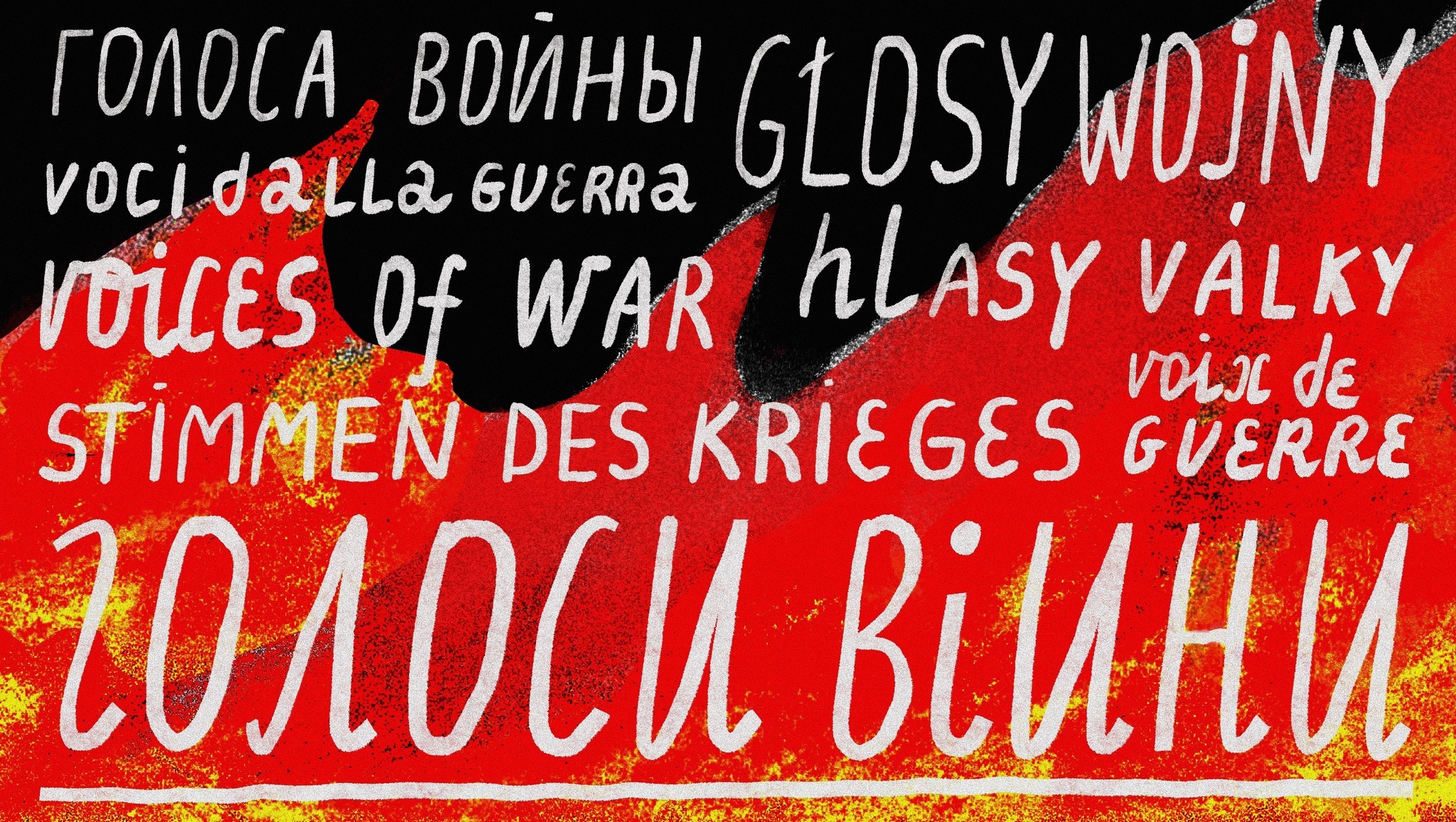Three years have passed since the beginning of full-scale Russian aggression, when millions of Ukrainians were forced to leave their homes under shelling and take their children to safe places. Many of the children who left Ukraine at that time have been living in EU countries ever since. When their families left, they did not think that the war would last so long that the children would grow up in other countries and learn in other languages. The EU granted temporary asylum to Ukrainians – many then perceived the situation as a short-term disaster, planning to return home soon and finish their education in Ukrainian schools. Some of the families returned, but many could not; their homes were occupied, or were destroyed by the war, and Ukraine remained unsafe for all these years.
Gradually, almost all children switched to local schools in local languages, joining the educational process of the host countries. In some cases, parents made great efforts to ensure that children could join local schools and study in the language of the country. A mother of four children:
“The most important thing is that my children were enrolled into German classes because the education in the German classes is very good. We had a lot of additional lessons, courses, and tutors, but still we made sure that the children were already better than the others in terms of their level, they were given chance, and so they got into German classes.”
The children developed social connections, and older teenagers sometimes sought and found jobs (part-time jobs), graduated from school, entered secondary vocational or higher educational institutions, and acquired a profession. Many teenagers have realized that they want to get an education in the EU, and they do not plan to return to finish their studies in their native places. At the same time, they think that after getting an education, they may go to work in Ukraine. Some teenagers take on a double burden: they study in European schools, but they do not give up online education in Ukraine in order to get Ukrainian certificates. Their parents increasingly realize that the decision of their children’s fate is now in the hands of the growing teenagers themselves, and they do not know what to advise, realizing that the reality surrounding them now is too different from what they are used to at home.
One mother described her doubts about the choice of her youngest son in this way:
“He says, ‘I’m not thinking about going to university, I don’t need a university, I don’t need anything. Now you can earn money without graduating from university,” you know. Well, as for me – I do not know… I’m kind of not insisting anymore, because I’m already confused myself and I don’t know what’s better or what’s not. Because the concept of a university is, however, a little different here than ours. In Ukraine, it seems that almost everyone has a university degree. But here, it seems to me that if you have already graduated from university, then you already value yourself anyway, and you already have more opportunities. But I don’t know… The world is changing so much now that I’m not forcing this junior anymore. Although no, it is desirable – as a mother, I would like them to have a higher education.”
At the same time, the representatives of the Ukrainian youth themselves, who find themselves in the EU, feel painful uncertainty, not knowing what awaits them in the future. According to a student who was forced to leave Donbas (the place where her parents’ family lives were occupied in February 2022), she still cannot determine her life plan, even for the near future:
“This wave that dragged me to Belgium, it still drags me in some way. I do not always understand what is going on, I do not know in which country I will live in a year. Well, now I’m finishing my studies, okay, and then what to do – to start working, or go to graduate school, in Belgium, or in Ukraine, or in some other country…”
This girl notes that, despite the complexity of the life choice facing her, it is still easier for her than for those who came from Ukraine as a schoolchildren, like her younger brother. She was a student in Kharkiv from the age of 17. When she got to Belgium, she knew that she would continue her art education, and she immediately enrolled in the university’s design department. Her younger brother did not have time to make a professional choice before leaving, and once in a foreign country, he was confused, unable to find his way – despite the support of his host family and sister:
“It turns out that he has this question, ‘who do I want to be?’, it took a little longer, and the longer it is taking, the worse it gets, although at that age we more or less, let’s say, separated, he arrived at the age of 16. The parents are not with us, but the parents in our case could not help much, although they could influence him to become a mechanic, or to become a doctor.… He has a desire, even, I would say, too many desires, and now they are lost. You just need to choose something specific, but you can’t choose something specific right now, you don’t want to be a bicycle repair master all your life, he’s afraid to get stuck in this kind of flow of just simple work. He’s also well aware that he’s just wasting his time. He’s 18 now, which is generally the best time to study, get a higher education, and not just survive.”
There are also successful examples of the integration of teenagers who find themselves in Belgium without parents. On the Radio Liberty video, Maxim, a 16-year-old boy from Ugledar, whose house was destroyed by a Russian missile, tells his story. His parents were unable to leave Ukraine; he came to Brussels with his grandparents, and was accepted by a local family that later took a fostering status. The boy appreciated the opportunity not only to learn French better while living in the family in Brussels, but also to learn new rules of life:
“Everything should be clear, everything should be scheduled, everything should be on time,” he says. – For example, meals, family dinners. It’s very important to them. Of course, there are a lot of good things that can be seen in this family.”
The issue of teenage separation is also acute in families who have arrived together – parents with children. A mother of three sons said that the purpose of moving to the EU for them was based precisely on the desire not to separate. In fact, the decision of the middle son to follow the eldest (already a student who studied abroad at the outbreak of the full-scale war) forced her and her youngest son to leave home. She tells about the independent decisions of this son as follows: at first he insisted on leaving Ukraine, and at the age of 18 he wanted to live separately from his parents already in forced emigration:
“He wanted to leave anyway and said: “I’ll be 16 years old – and he was 16 in September 2022 – and he says: I have the right to cross the border, I’m going to my brother. Well, when he turned 18, he said that “I am already going to live alone, I have the right, I am 18 years old. That is, he turned 18 years old, he got social assistance for himself, and works from time to time to earn some minimum.”
The young man not only managed to find a living while continuing to study at school, but also rented a separate apartment with his girlfriend, also a schoolgirl, who found herself in Belgium without parents, under the care of a Belgian family:
“When the war started, she was with her mother, but her mother went to Ukraine, while the girl did not want to. And she found a program for herself, where the Belgian family is responsible for you. She found a Belgian woman and stayed with her. And then, when she and my son became friends like this for about six months, she even came here sometimes to our place where we lived, and she started telling that Belgian woman that she would like to live separately. And even that Belgian woman helped them find a place to live, helped them find it, as I understand it. That is, they already live together. She is still considered to be under guardianship, but somehow the children are so progressive now that they have learned all the nuances. She can stay away from that family for five days, and only live in that Belgian family for two days.”
The youngest son in this family is also determined in a different way, but no less definitely. The mother explains that the youngest son came only for the sake of the brothers’ company, without them he sees no point in living out of Ukraine:
“He seemed to go more to join them and to follow them, but they have grown, and the situation is no longer the same. Looking at the adult lives of the brothers, he already makes up his own idea of his adult life.”
This youngest son is determined to return home; thus, he deliberately isolates himself from the new reality, does not want to make new friends in a new place:
“He has such plans: As soon as the war is over, go straight home. And he doesn’t even want to find Belgian friends here, because, as he says, “I don’t plan to stay here.” And since he’s so independent character, you know, he’s even now interested in various computer technologies, he’s already taken some different courses, he’s even looking for something for himself, he’s doing it because he doesn’t want to stay here. That is, he somehow directly plans, well, he specifically doesn’t seem to enter into any kind of social friendly stories, so as not to waste time…”.
All the girls and boys surveyed noted the difficulty of linguistic and cultural adaptation in the new reality. Here’s how an art student in Belgium talks about it:
“I’ve been learning Dutch for the third year now, and now I’m on vacation, but I’m enrolling in a Dutch course again, and I’m going to continue, because, as I said, language is the most important thing at all. It doesn’t matter how smart you are, how cool you are, or how funny you are. If you can’t say this or that, well, you’re nobody. For me, it’s more about some kind of social understanding of each other, that’s how people are, because I don’t have such close relationships with any of the Belgians here, like I had in Ukraine. I’m a stranger here, and I know that I’m a stranger here, and even if I learn Dutch perfectly, I’ll still be a stranger because I’m from a different situation. In fact, it only affects my sense of self, it will not affect my work or my studies in any way. Maybe it doesn’t even affect your social life– you make some acquaintances there anyway. But sometimes I just talk to someone and think to myself.: What am I doing here anyway, these are not my people, we will never understand each other at all… That’s what happens sometimes, it’s just me, usually I try to remove it, it’s useless to think about it, but it happens.… I do not know how many years one has to live to feel at home in a foreign country.”
Some people painfully perceive themselves as strangers, both from peers and from adults, sometimes even schoolteachers. A student at a German school in a Bavarian village notes that among German students there are those who divide everyone into Germans and non-Germans, and there are others who treat children from other countries well:
“We have a friend, a good German. It’s nice to talk to him, he’s a smart guy himself. And it’s clear that he’s tolerant of everyone, treats us well, and he treats us the same way. And there are Germans who imagine themselves to be the leaders of this village. For example, we went to play football – the field is for everyone, there are even rules written there on how and what can be used there, but there is no rule that migrants should not be allowed. But the Germans came, they kicked us out, kicked us out of this field, saying that we were not allowed to play there – according to the rules, they said, this field was supposedly only for Germans. It’s not just at school, of course, it’s very obvious at school how they divide people, there are even people who are purely German and even who mock migrants. And there are Germans who are friends, they communicate with migrants, they even become childhood friends, one might say.”
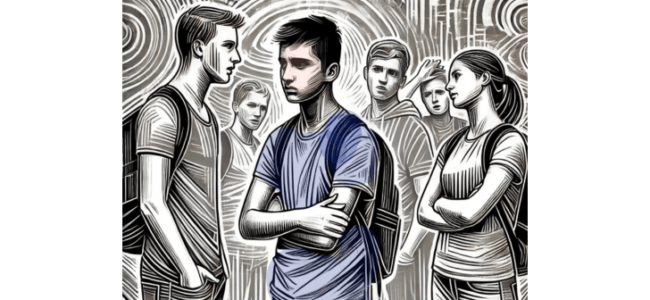
A girl, who also studies in Bavaria, but at a different school, notes that even teachers at the school allow themselves to say in front of the students: “we have only 3 Germans in our class,” although there are German-born children in the class. But since they come from families of Turkish origin, the teacher does not consider them equal to Germans, which offends children from migrant families, including her Ukrainian students. The girl talks about her teachers:
“Two people who probably understand us are trying to help us in some way, but they still get such jokes, but most of them… especially the class tutor, it feels like she doesn’t like us, she tries to humiliate us all the time, she gives us lower marks.”
Sometimes there are conflicts with children from other countries who also came to Germany. Thus, a boy was forced to fight with a group of children of migrant origin when they began to express their support for the Russian military aggression, and this offended Ukrainians. There are also cases of conflicts between Ukrainian children and children from families who moved to the EU from Russia.
Many Ukrainian students have difficulty finding mutual understanding with other refugee children from countries where people also suffer from violence and wars: Afghanistan, Syria, and African countries. When students from Ukraine find themselves in classes for non-native speakers, they are sometimes not immediately ready to accept themselves as part of the general group of migrant children.
But the new life also provides an opportunity to become more open and tolerant, especially for those who come from small towns and villages. As a mother of Ukrainian children rightly points out, the conservatism of thinking often depends on the degree of provinciality of the place – both in Ukraine and in Europe:
“We have such an idea about Europe that everything is allowed and open here, and therefore when our children move here, they seem to be completely different. But the same thing actually exists in Ukraine. I would just say that the smaller the town, the more people know each other. You can’t really go anywhere there, because your aunt knows you there, your mother knows your grandmother there. And there’s a lot of space in a big city, you know? And it seems to me that if this is a village, then it is a village, the same in Belgium.”
Among the teachers who deal with Ukrainian children in European schools, there are many teachers motivated to help migrants who are willing to devote time and attention to children of poor competence in local language. These teachers believe that Ukrainian children can overcome all barriers, become excellent specialists, and find a good job in the EU. A teacher of a maritime college told about his Ukrainian students – some of them had previously studied seamanship in Odesa and Mariupol, others had already chosen this specialty in emigration. The main problem for everyone was the new language of instruction, and the school needed to take support measures to solve this problem:
«I think language is the key. So, in case like they fail, which means they basically will use their mobile phone and some translation program, they will try to manage with that, which is quite well possible. If you do everything in a written form and you always use your translation tools, well, then you will be successful in a way of survival. In another way, I remember the boy from Mariupol, who came to us in the first year and he checked the courses. He was very happy, but he said like, let me first do the language course and come back to you. So, Iwas a bit worried whether he would come back, but he came back and he had quite a good command of the language. He was really able to understand the lesson and to perform written tasks, to write answers to questions, to do tests, exams, etc. So he’s in a way the most positive example.
In another way, there were successful guys who I saw coming into school, translating everything on their gadget, on the mobile phone, or using a laptop or something.And then they would develop and by using the language a lot, they would learn and they are advanced.
So, for example, there was one group with two guys, one boy from Kiev, and one from Odesa, and the boy from Odesa decided from day one to sit on the front row, to make notes, to take notes all the way during the lesson, to ask questions after the lesson. He was also in my opinion very successful because his marks went from unsatisfactory to nearly satisfactory, and I think at the moment, he is on a satisfactory level already. But it took him a year of hard work, and he failed this year, purely because of language problems. Another student from Mariupol didn’t manage, and then he left school.
So, I was a bit sorry, I thought maybe in the beginning, if there had been more coaching and more support, maybe he would have managed, after all, the whole situation much better. I thought the school was not really failing him, but not enough motivating him to study hard.
I’ve seen that with one of my students who just needed more time to perform tasks. And he needed that time because he had to scan the questions. He had to read through the text to find the answers. Then he scanned the answers to read the answers. And then he would take his pen and then write down the answers. Whereas other kids do not need to scan anything. They just look through the text and find the answer. I think that was important as a support.
I’ve seen also the failure of support because my colleagues, they thought that they just needed to translate or transcribe texts into Cyrillic in order for Ukrainian people to read them. They thought that Ukrainian students cannot read Latin letters, which I think is quite strange because I think even when kids are not very much using their phone or something, they’re very used to, I don’t know, YouTube or TikTok or any social media which uses a lot of Latin or they watch their favourite songs or music or programs. I think they don’t have any problem with the Latin letters. They have a problem with understanding the meaning of the text in a foreign language. So, they just needed to use a good translation program. But then we got this kind of discussion about language subjects that enabling Ukrainian kids to translate would in a way give them an advantage or an unfair advantage. On the other hand, because they are all the time in a position of disadvantage, to have a little advantage like that is not in a way giving them the upper hand or giving them the magic of solving any language problem in their mobile phone or something».
Noting the difficulties of children in language adaptation, the teacher positively assesses the effect of integration efforts in the school environment:
«They’re very mixed, so they’re mixed into their own groups, it’s very funny that some of the other kids say: “Dobroho ranku” in the morning, in order just to make the Ukrainian kids feel comfortable and just to start a conversation or something, we had certain occasions where we put the Ukrainian kids together on some kind of cultural days when we went to make an excursion and perform certain tasks just because it was easier to communicate together on that occasion and that made them also very happy. They felt like okay; we gave them a special team to guide them, like my colleague who knows Ukrainian, who lived in Dnipro, he took a guidebook and we went to a number of places, we read the guidebook, we did perform the necessary tasks and, in the end, we won the competition for answering the questions, which I think showed that that was in that case the right option. Also I had the feeling like when they were together and some were together, I don’t know, for the first time they could talk to each other because normally they’re at school mixed in in the other groups, I think they felt good, they felt like nice to be able to talk, to walk around the city, to have fun and when they knew that we had won the competition, that made them very proud, that made them feel like: “Look, we can do it”.
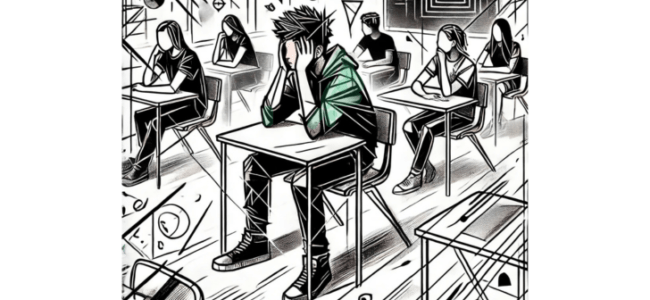
Among the students of this school, there are those who have managed to successfully combine their studies with professional paid practice; the teacher told about a student from Mariupol:
«I know that the boy from Mariupol, whom I like very much, he is doing this kind of dual studying, which means like half of the time he actually works on board of a ship. And half the time he is in the classroom at school and he does very well. Like these people who employ him and with whom he does this kind of practical training on board of ship, they are very, very satisfied. And I think it on one hand is, of course, something personal that you fit or not fit to your boss. On the other hand, I think because he is a serious approach to master the language in order to communicate, though he is like a rather modest and quiet person, this has paid off».
It is too early to sum up the story of how Ukrainian children grow up and enter adulthood in the EU. The uncertainty of the moment, the complexity of the situation, but also hope convey the words of a young student:
“Talking about some distant plans for the future, they’re not very good at all… So far, I feel comfortable economically and as a student, it’s like I’m just doing something here, studying something there, but it’s like something real can only be built when the war is over, after I see my parents and sisters, and visit home… For some reason, it feels like I only after that I’ll be able to choose where I feel better: it’s better here or it was better at home. But for now, I’m trying to do as much and as best as I can. So far, we are not being expelled from Belgium – thank God, thank Belgium, but even if they decide to expel, in my case it will not be some terrible tragedy. I love Kharkiv very much as a city, I always have, and if they tell me now: “leave Belgium, that’s it, the gates are closed here, we’re kicking you out,” then I will go to Kharkiv and build my life there, and I will be very happy. That’s it.”









 Feedback
Feedback 